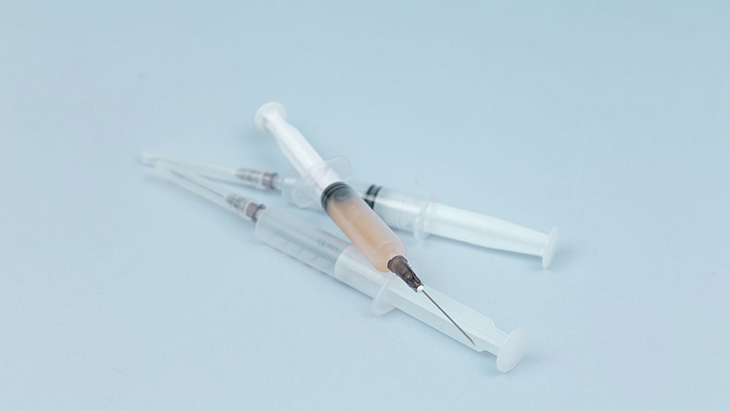
The latest formulation of Abilify offers a significant advancement over its previous long-acting injectable version, as it now lasts twice as long. This extended-release injectable medication, known as Abilify Asimtufii (aripiprazole), only needs to be administered once every two months. This development was announced by Otsuka and Lundbeck, the pharmaceutical companies responsible for producing the drug, and it received approval from the U.S. Food and Drug Administration (FDA) on April 27, 2023.
For individuals dealing with schizophrenia and bipolar 1, long-acting injectable drugs (LAI) like Abilify Asimtufii have proven to be immensely beneficial. By providing a steady dose of the medication, these formulations greatly aid in effectively managing their condition, ultimately leading to an improved quality of life.
It’s worth noting that aripiprazole has been available as a once-monthly injectable called Abilify Maintena since its FDA approval in 2013. Now, with the approval of the longer-lasting Abilify Asimtufii, patients from the same population can receive the same benefits with less frequent injections, making treatment even more convenient and potentially enhancing patient adherence to their prescribed medication regimen. Like its predecessor, Abilify Asimtufii is administered via injection into the gluteal muscle by a healthcare professional.
Abilify Asimtufii Effective in the Treatment of Schizophrenia and Bipolar 1
Abilify Asimtufii’s effectiveness is rooted in previous studies conducted with Abilify Maintena, which focused on treating schizophrenia and providing maintenance treatment for bipolar 1 disorder in adults.
The research revealed that the bimonthly long-acting injectable version of Abilify Asimtufii, available in 960 and 720 milligram prefilled syringes, maintained consistent plasma concentrations similar to the once-a-month version. Moreover, it demonstrated comparable efficacy in treating the conditions.
During the study, Abilify Asimtufii was found to be generally well-tolerated and safe, with no new safety concerns compared to the one-month version. The most commonly reported adverse reactions included increased weight, akathisia (restlessness), injection site pain, and sedation. For more detailed safety information, please refer to the Abilify Maintena website.
Schizophrenia and Bipolar Disorders Are Often Left Untreated
According to The Treatment Advocacy Center, approximately 2.8 million individuals in the U.S. are living with schizophrenia, a mental disorder characterized by disruptions in thought processes and non-reality-based delusions.
Despite being relatively uncommon, schizophrenia ranks among the top 15 leading causes of disability worldwide. The National Institute of Mental Health (NIMH) estimates that those with this disorder may lose an average of 28.5 years of their life potential. Shockingly, nearly 40% of people with schizophrenia remain untreated in any given year, as reported by The Treatment Advocacy Center.
Bipolar disorder is categorized into three classes: bipolar 1, bipolar 2, and cyclothymic disorder. Additionally, there is a fourth “unspecified” type for individuals who experience significant mood elevations but do not meet the criteria for the first three classes.
Formerly known as manic depression, bipolar disorder is characterized by dramatic shifts in mood, energy, and activity levels that hinder the performance of day-to-day tasks and responsibilities, according to NIMH.
It is estimated that about 4.4 percent of U.S. adults experience bipolar disorder at some point in their lives. Alarmingly, more than half of those affected do not receive treatment during any given year.
The Benefits of Long-Acting Injectables for Schizophrenia and Bipolar
Travis Krew, MD, a psychiatrist at Cleveland Clinic in Ohio, who was not associated with these trials or the drug manufacturers, mentioned that these long-acting medications for schizophrenia and bipolar disorder have been in use for a considerable period. They have the potential to assist patients in maintaining their antipsychotic medication regimen.
“It can be challenging to take a tablet or pill each day, and it is even harder when taking multiple medications, perhaps several times per day. Setting alarms, using pill organizers, or creating other reminders may help some patients, but they don’t work for everyone,” Dr. Krew said.
He added that failing to take medication as prescribed frequently leads to the exacerbation of symptoms, potentially making it more challenging for a patient to carry out daily tasks, and in severe cases, even leading to hospitalization.
The fact that these medications need to be administered by a medical professional is another big plus, Krew believed. “This often allows for more opportunities for a patient to check in with a healthcare provider about their symptoms,” he said.
For some people, the steady medication levels may also help them cope with the side effects that come with it, he added. “Individuals who notice side effects when their oral medication level peaks in the bloodstream, usually within a couple of hours after taking their oral medication, may benefit from the more consistent blood level offered by long-acting injectable antipsychotics,” Krew stated.
Abilify Asimtufii Approval and Cost
According to an Otsuka spokesperson, the drug is anticipated to be released in the early months of this summer. Although pricing details are currently unavailable, the company is optimistic that Abilify Asimtufii will be eligible for coverage by commercial insurance.



